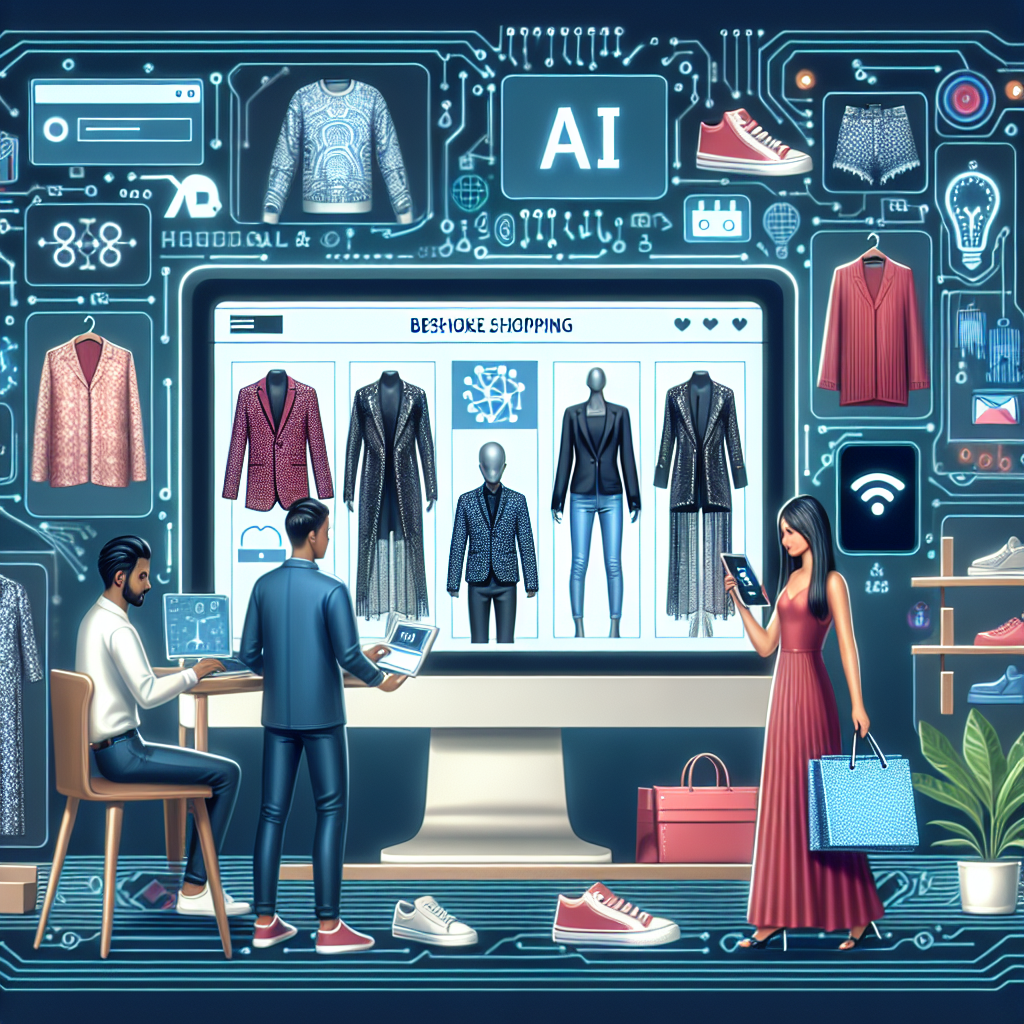Artificial Intelligence (AI) has been revolutionizing the way we shop for clothes, accessories, and other fashion items. With the help of AI, retailers are able to offer personalized shopping experiences that cater to the unique tastes and preferences of each individual customer. From virtual try-on tools to personalized recommendations, AI is redefining the way we shop for fashion.
One of the key ways AI is changing the fashion industry is through virtual try-on tools. These tools use AI algorithms to analyze a customer’s body shape and size, allowing them to virtually try on clothes and see how they would look before making a purchase. This not only helps customers make more informed decisions about what to buy, but also reduces the likelihood of returns, which can be costly for retailers.
Another way AI is enhancing personalized shopping experiences is through personalized recommendations. By analyzing a customer’s browsing and purchase history, as well as their social media activity, AI algorithms can predict what items a customer is likely to be interested in and offer personalized recommendations. This not only helps customers discover new products that they may not have otherwise come across, but also helps retailers increase sales by showcasing items that are more likely to appeal to each individual customer.
AI is also being used to personalize the shopping experience in-store. For example, some retailers are using AI-powered smart mirrors that can recommend outfits based on a customer’s preferences and body shape. These mirrors can also suggest accessories to complete the look, creating a more personalized and seamless shopping experience for customers.
In addition to enhancing the shopping experience, AI is also helping retailers improve their inventory management and supply chain processes. By analyzing sales data and customer preferences, AI algorithms can predict which items are likely to sell well and adjust inventory levels accordingly. This helps retailers reduce the risk of overstocking or understocking, and ensures that they are able to meet customer demand more effectively.
Overall, AI is redefining personalized shopping experiences in the fashion industry by offering virtual try-on tools, personalized recommendations, and in-store personalization. These tools not only help customers make more informed decisions and discover new products, but also help retailers increase sales and improve their inventory management processes.
FAQs:
Q: How does AI virtual try-on technology work?
A: AI virtual try-on technology uses algorithms to analyze a customer’s body shape and size, allowing them to virtually try on clothes and see how they would look before making a purchase. This helps customers make more informed decisions and reduces the likelihood of returns.
Q: How does AI personalize shopping experiences?
A: AI personalizes shopping experiences by analyzing a customer’s browsing and purchase history, as well as their social media activity, to predict what items they are likely to be interested in and offer personalized recommendations. This helps customers discover new products and helps retailers increase sales.
Q: How can retailers benefit from using AI in the fashion industry?
A: Retailers can benefit from using AI in the fashion industry by offering personalized shopping experiences, improving inventory management, and increasing sales. AI helps retailers better understand customer preferences and behavior, leading to more targeted marketing and sales strategies.
Q: What are some examples of AI-powered tools in the fashion industry?
A: Some examples of AI-powered tools in the fashion industry include virtual try-on tools, personalized recommendation algorithms, and smart mirrors that offer personalized outfit suggestions based on a customer’s preferences and body shape.
Q: Are there any drawbacks to using AI in the fashion industry?
A: While AI offers many benefits to retailers and customers, there are some potential drawbacks to using AI in the fashion industry, such as concerns about data privacy and security, as well as the potential for AI algorithms to reinforce existing biases in the industry. It is important for retailers to be mindful of these issues and take steps to mitigate them.

